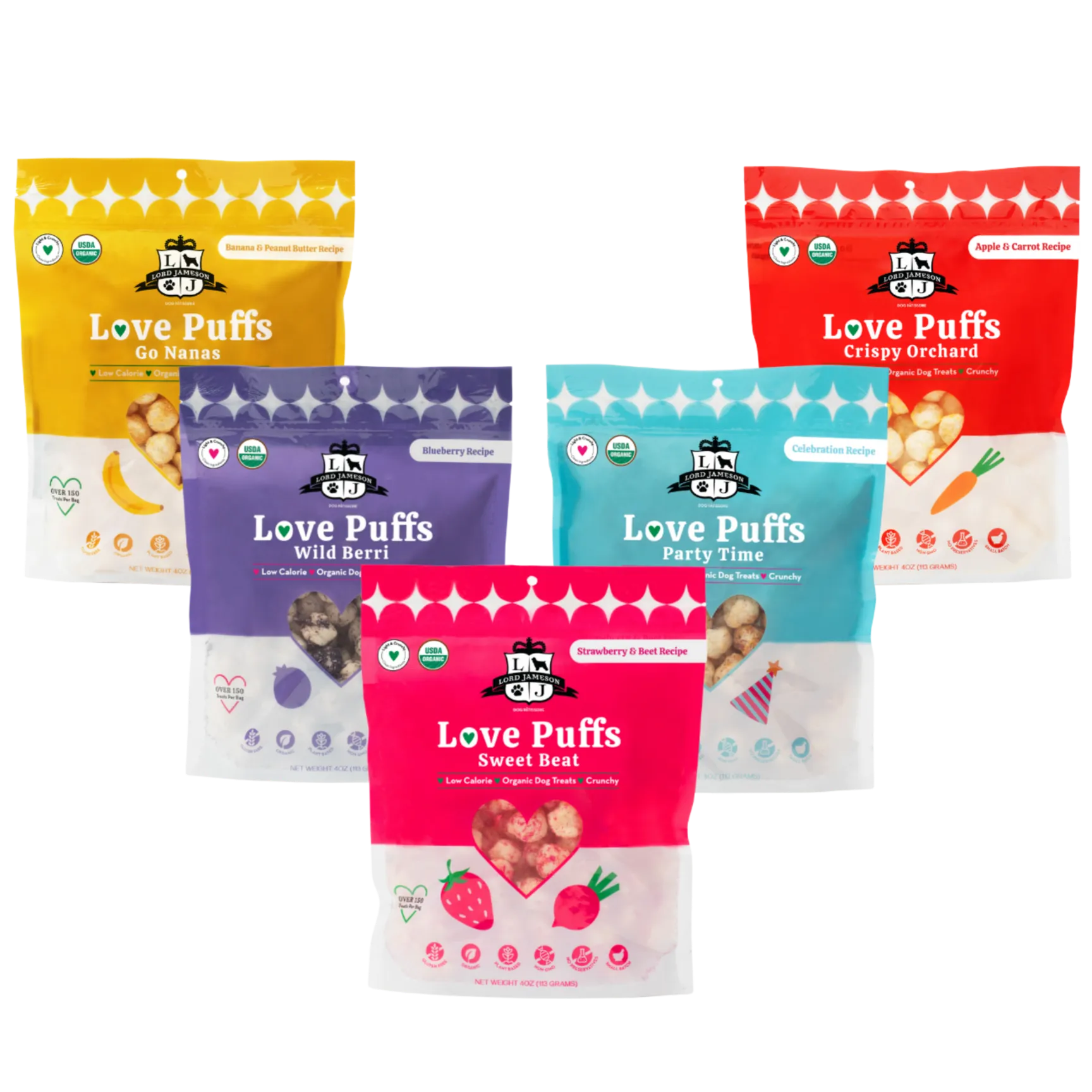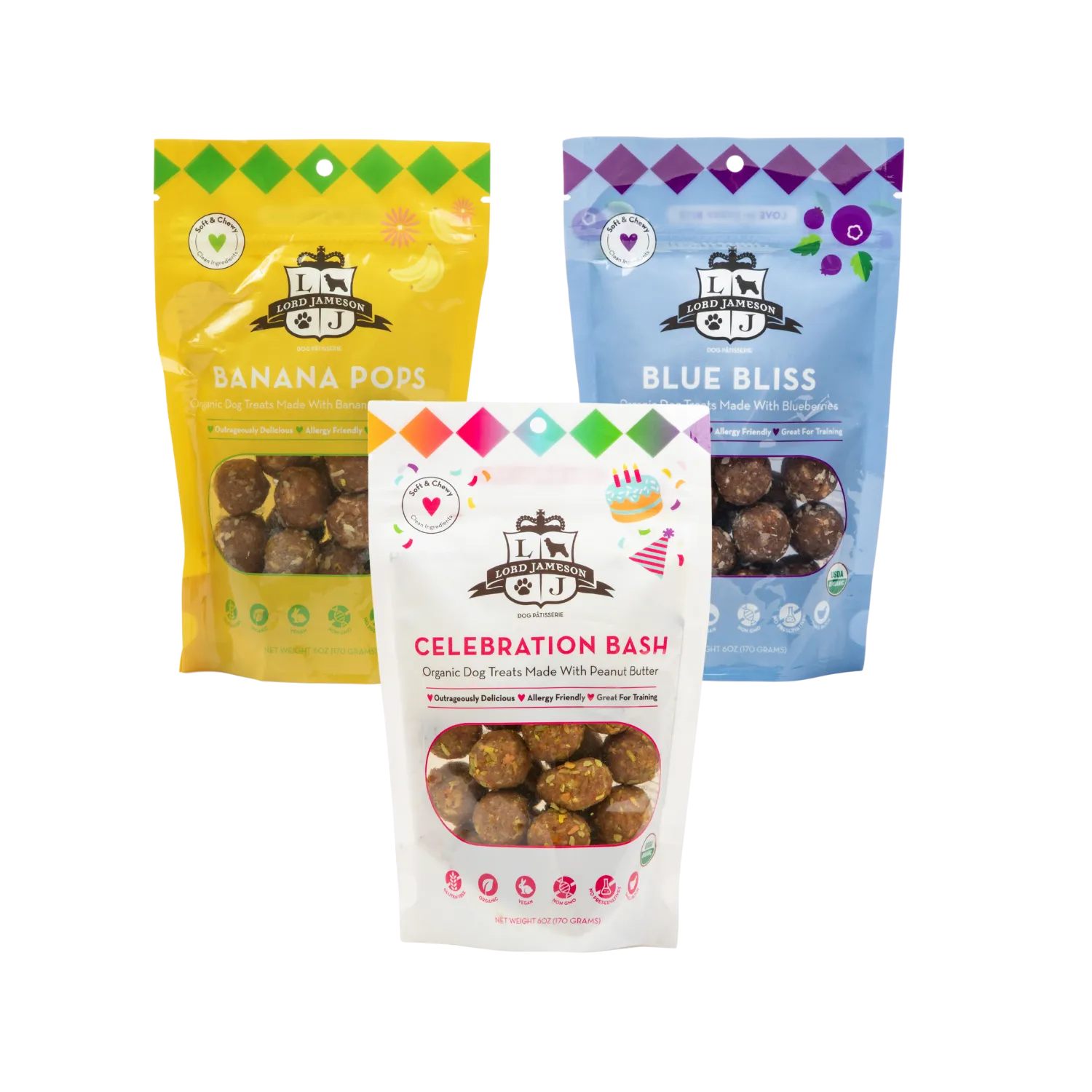Bringing a new puppy home is an incredibly exciting and heartwarming experience, filled with joy and new adventures. Yet, it also comes with significant responsibilities, particularly when it comes to training and nutrition. Positive reinforcement with treats is a cornerstone of effective puppy training, but for puppies under three months old, choosing the right treats is crucial. Their digestive systems are still developing, making them sensitive to certain ingredients and sizes. Finding suitable treats for such young puppies can be challenging, but this guide from Dog Care Story will walk you through the essential tips for selecting the perfect, healthy rewards for your little companion.
What to Consider When Choosing Treats for Your Young Puppy
When selecting treats for your new furry family member, remember that they are more than just tasty rewards; they are an integral part of your puppy’s diet and development. Since young puppies have delicate digestive systems, it’s vital to choose treats specifically formulated for their developing needs. While treats are excellent for training and satisfaction, they should always complement a balanced, high-quality puppy food diet. Here’s what you should prioritize when shopping for treats.
Size and Age-Appropriateness
The first and most important consideration is ensuring the treats you select are age-appropriate. Treats designed for adult dogs are often too large and dense for a young puppy’s small mouth and developing teeth. Their size can pose a choking hazard, and their higher calorie count or different ingredient profiles might upset a sensitive puppy stomach. Always look for products explicitly labeled for puppies, especially those under three months. Many brands make it easy by clearly indicating “for puppies” or specific age ranges on the packaging, which streamlines your shopping process. Choosing smaller, softer treats will prevent dental issues and ensure safer consumption for your growing pup.
Quality Ingredients Matter
Just like with human food, reading the ingredient label of any pet product is paramount. For young puppies, treats should primarily consist of identifiable, whole ingredients. Prioritize treats that are high in nutrition and free from artificial additives, preservatives, or synthetic dyes, which can potentially harm your puppy’s delicate system or cause allergic reactions. Opt for organic or all-natural dog treats whenever possible. These typically contain fewer processed components and more beneficial nutrients. For instance, treats made with real meat, fruits, and vegetables are excellent choices. You can also explore options like homemade soft dog treats no bake to ensure you control every ingredient.
Choosing treats with limited, natural ingredients reduces the risk of digestive upset and ensures your puppy is getting wholesome goodness with every reward. Many high-quality brands focus on simple, recognizable ingredients, often listing meat, vegetables, or fruits as the primary components. This approach supports your puppy’s overall health and well-being as they grow and develop.
Nutritional Value for Growing Pups
Beyond taste, the nutritional value of puppy treats is a critical factor. Treats for young puppies need to be nutritiously packed to deliver optimal health benefits. Nutrients are the fundamental building blocks for a puppy’s rapidly developing body, facilitating essential biological processes such as robust joint function and healthy bone development. Treats with insufficient nutritional value can complicate puppy-raising, making it difficult for owners to keep their pups on track nutritionally. Moreover, puppies who don’t receive adequate nutrients can develop vitamin and mineral deficiencies, potentially leading to more complex health issues later in life. Therefore, making nutrition a priority when selecting treats is vital for your furry friend’s long-term health. Consider treats that also offer some protein to support muscle development and energy levels. What foods you can feed your dog in general also provides a great overview of healthy dietary choices for canines.
 A variety of small, healthy treats suitable for young puppies
A variety of small, healthy treats suitable for young puppies
Understanding Shelf-Life
Shelf-life is an often-overlooked but crucial aspect of puppy treats. Knowing and tracking an item’s shelf-life helps ensure you are providing safe, fresh products to your puppy. This information also guides manufacturers in producing treats that maintain quality for as long as possible. Without proper shelf-life management, puppies could be exposed to expired ingredients, leading to undesirable health outcomes, such as digestive upset or illness. For owners, being aware of shelf-life helps prevent unexpected food wastage. Always check the “best by” date on packaging to guarantee that the treats you offer are fresh, healthy, and safe for your young pup. This small step contributes significantly to keeping your dog healthy and happy.
Types of Treats for Puppies Under 3 Months
When considering the array of puppy treats available, a bit of research into the ingredients list is always beneficial. Treats rich in healthy fats and proteins are ideal for rewarding your pup’s good behavior. Additionally, think about your puppy’s texture preference – crunchy treats can offer dental benefits, while chewy treats often provide more concentrated nutrition and flavor. While numerous options exist, prioritizing natural ingredients is always a smart choice for young puppies.
Training Treats for Positive Reinforcement
Training treats are an invaluable tool for motivating your puppy during training sessions. They not only reward good behavior but also stimulate your pup’s senses through taste and smell, encouraging them to focus on tasks. With the consistent use of training treats, you can positively shape your puppy’s behavior, helping them learn new commands and tricks efficiently. These small, often soft, and highly palatable treats are perfect for frequent rewards without overfeeding. Because they are typically low in calories, you can use several during a single training session. For instance, a soft peanut butter dog treats recipe might be perfect for keeping your pup engaged. Your furry friend deserves to be celebrated for their efforts and unconditional love, and training treats are a wonderful way to do just that.
 Tiny, round training treats in a serving bowl
Tiny, round training treats in a serving bowl
Teething Treats for Comfort and Development
Just like human babies, puppies experience a teething phase, which can be uncomfortable and lead to excessive chewing. Providing appropriate teething treats can significantly improve their overall quality of life during this period. These treats offer a satisfying outlet for their natural urge to chew, soothing their sore gums and helping to prevent them from chewing on furniture or shoes. Beyond redirection, teething treats also encourage healthy oral development. Many teething-specific treats for dogs contain minerals that promote strong teeth, fresh breath, and improved digestion. Look for options that are durable yet gentle on delicate puppy gums and jaws, providing relief while also delivering beneficial nutrients.
Treats to Support Overall Growth
Puppy treats play an essential role in a young dog’s diet, offering vital support during their rapid growth phase. Beyond being delicious rewards, these treats are often fortified with the necessary vitamins and minerals to boost metabolism, aid digestion, and ensure comprehensive nutrition. Protein-rich treats, in particular, have been shown to stimulate muscle development and support dental health in puppies of all sizes. By choosing treats designed to support growth, you contribute to your puppy’s strong bones, healthy coat, and robust immune system. It’s an easy way to provide an extra nutritional boost, ensuring your puppy thrives from the very beginning. For a well-rounded diet, consider a high-quality food, perhaps researching options like blue buffalo high protein dog food as a complementary part of their diet.
 A bundle of organic dog treats in various flavors
A bundle of organic dog treats in various flavors
Key Factors in Selecting the Best Puppy Treats
When the time comes to select the best treats for your young puppy, remember that the ingredients should always be your top priority. Your decisions now lay the groundwork for a lifetime of good health and eating habits.
Prioritize Natural, High-Quality Ingredients
Focus on treats made with high-quality, whole ingredients such as real meats, fruits, and vegetables. Avoid anything that contains artificial dyes, colors, or preservatives. If you can’t pronounce an ingredient, it’s often a red flag! Such artificial components can be detrimental to a puppy’s health, potentially causing allergic reactions, digestive issues, or long-term health problems. Natural ingredients are easier for their sensitive stomachs to digest and provide superior nutritional benefits. Look for transparency in labeling, indicating that the product is organic, all-natural, or human-grade. This commitment to quality ensures that every treat contributes positively to your puppy’s health and vitality.
Appropriate Size and Texture
The size of the treat is crucial to prevent choking hazards, especially for puppies under three months. Opt for treats that are small and soft, or easily broken into smaller pieces. Soft treats are particularly beneficial for puppies whose teeth are still growing and sensitive. Chewy textures can also be good for teething, as long as they are not too hard. The right size and texture ensure that your puppy can safely and comfortably enjoy their reward without risking injury or digestive upset.
 An adorable young puppy looking curious about its treats
An adorable young puppy looking curious about its treats
Frequently Asked Questions About Puppy Treats
New puppy owners often have many questions about introducing treats into their little one’s diet. Here are some of the most common inquiries.
What treats can I give a 3-month-old puppy?
For puppies aged three months, it’s essential to be very selective about what you feed them. Look for treats specifically designed for puppies, often indicated on the packaging. Smaller, softer bites are best, as their teeth are still sensitive and developing. Ideal choices include small pieces of your puppy’s regular kibble, which are already part of their balanced diet, or soft, organic puppy treats that are easy to chew and digest. Always ensure any treat is free from artificial ingredients and preservatives.
Can my puppy eat human food?
While it’s tempting to share your delicious food with your adorable puppy, it’s generally best to think twice. Many human foods, even seemingly harmless ones, can be dangerous for dogs. High levels of salt, sugar, and fat commonly found in human meals can lead to serious health complications for both young and adult dogs, including pancreatitis, obesity, and gastrointestinal upset. Most veterinary experts recommend sticking to a nutrient-rich diet specifically formulated for dogs. This ensures your pet receives all the necessary vitamins and minerals without exposure to hazardous human foods. If you do consider offering human food as a treat, always double-check with a reliable source or your veterinarian to confirm it’s safe for canine consumption. For more detailed information, consider reading what human food can dogs eat as treats.
When can I start giving treats to my puppy?
Introducing treats to your puppy is a valuable part of their training and helps build trust between you. However, it’s generally recommended to wait until they are a minimum of three months old before introducing various treats. By this age, most puppies are no longer nursing and are better equipped to safely digest different foods. When you do start, offer only small amounts initially, closely monitoring how your puppy’s body responds to new ingredients. Feeding them several smaller meals and treats throughout the day, rather than one large meal, can also aid digestion and prevent them from becoming overly excited or gulping food too quickly.
What exactly are puppy treats?
Puppy treats are specially formulated edible rewards used for positive reinforcement training and as supplementary snacks for young dogs. They come in a wide variety of shapes, sizes, flavors, and textures, making it easy to find one that your furry friend will adore. Whether soft puppy bites, crunchy kibble-like pieces, or chewy sticks, there’s something suitable for all puppies to enjoy. High-quality puppy treats are often fortified with important vitamins and minerals that contribute to your puppy’s healthy growth and development, making them a beneficial addition to their diet when used appropriately.
Conclusion of Treats for Puppies Under 3 Months
In conclusion, paying careful attention to what you feed your dog is paramount, regardless of their age. For puppies under three months, whose stomachs are especially sensitive and bodies are rapidly developing, the choice of treats becomes even more critical. We consistently recommend opting for natural, high-quality treats that are age-appropriate in size and texture, and packed with beneficial nutrients. By making informed choices, you ensure that every treat contributes positively to your puppy’s health, happiness, and successful training journey.
Thank you for reading, and we wish you the very best in raising your adorable little puppy!
